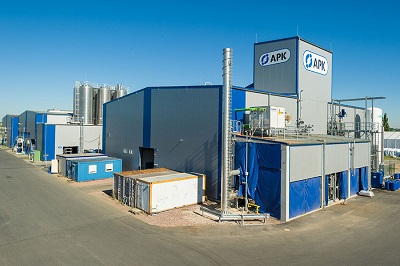Royal DSM and APK are leading the way towards raising the sustainable benefits of multilayer food packaging films. Aside from primarily reducing food waste, this type of films are the products can now be recycled via APK’s new recycling route.
Many multilayer barrier films for food packaging consist of a combination of PE and PA6, where PE acts as a barrier for moisture and PA6 as a barrier for oxygen thus significantly extending the shelf life of the packaged food. Such packaging cannot be produced with a mono-material PE film, since the layer thicknesses to achieve sufficient barrier properties would become too high. The addition of PA6 in the multi-material solution reduces the total layer thickness significantly and improves the mechanical integrity of the film resulting in less rupture of the films during transportation and logistics. This leads to a lower food waste percentage and thus to a significantly better carbon footprint in a Life Cycle Analysis.

With the cooperation, APK and DSM are also able to address the “End-of-Life” stage of the Life Cycle of a multilayer PE/PA6 packaging film using APK’s Newcycling® process, a technique that makes it possible to recover high-quality re-granulates with properties close to virgin plastics, from complex mixtures and multi-layer composites (so-called multilayer barrier packaging). With conventional recycling systems that is not possible. Moreover the Newcycling® process works highly cost-efficient and offers a competitive, sustainable material source. The re-granulates, generated from multilayer PE/PA6 packaging waste, can be used again in demanding flexible packaging which contributes to the target of a circular economy, according to Florian Riedl, Head of Business Development at APK AG.
APK is building a plant for recycling multilayer PE/PA6 packaging, using Newcycling® process, which will start up in Q4 of this year.
Nike













